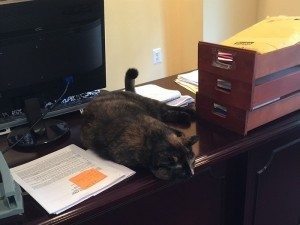 Dear Angel,
Dear Angel,
I contribute to a Health Savings Account regularly for prescriptions, medical appointments, supplies, and other medical expenses that aren’t otherwise covered. It ends up being a hefty amount after a while. What’s the best way to distribute the money in my HSA if there’s money left in it when I die? Thanks for your help!
H. S. Ayy
—
Dear H. S.,
During your lifetime, a Health Savings Account (HSA) can be a very effective savings tool for funding medical expenses.
The IRS allows people to contribute money on a pre-tax basis to an HSA ($3,600 per year for individuals and $7,200 per year for those on a family plan as of 2021). You can withdraw that money, both principle and earnings, completely tax-free, provided the funds withdrawn are used to cover qualified medical expenses.
There are three common outcomes for an HSA when the account owner dies:
- If the HSA owner designates his or her spouse as beneficiary on the HSA, the inherited HSA becomes the spouse’s own HSA as of the account owner’s date of death. He or she can then make tax-free distributions from the HSA to pay for their own qualified medical expenses similar to how the original account owner would have.
- If the HSA owner designates a non-spouse beneficiary, such as a child, on the HSA, it’s different. In this situation, as of the date of death of the account owner, the HSA is no longer considered an HSA for tax purposes and an immediate, taxable distribution of the entire balance in the HSA is made to the non-spouse beneficiary. He or she must include the HSA balance in his or her taxable income in the year of the account owner’s death. Any portion of an inherited HSA balance used to pay for outstanding medical expenses of the account owner within one year of the account owner’s death will not be taxable to the non-spouse beneficiary.
- If the HSA owner designates his or her estate as the beneficiary on an HSA, the account balance in the HSA is simply included in the deceased owner’s gross income for the year of his or her death. In this case, the HSA is still not included in the gross estate because it is considered income received by the account owner in the year of his or her death and is reportable as income on his or her final tax return.
Here are some things you can do to lessen the tax impact:
– List your spouse as beneficiary on your HSA to avoid your death resulting in a taxable distribution of the account.
– If you’re not married, consider the tax ramifications of listing a non-spouse beneficiary such as a child, given that 100 percent of the account balance will be distributed to that child in the year of your death, and it will be taxed at the child’s income tax rate at that time.
– If you are charitably-inclined and plan to leave a portion of your assets to charity, consider listing a charity as beneficiary on your HSA.
– Spend down your HSA on eligible expenses rather than your retirement accounts, because your children and other non-spouse heirs would rather inherit a tax-advantaged retirement account than an HSA.
Hope this helps!
Angel














Leave a comment
You must be logged in to post a comment.